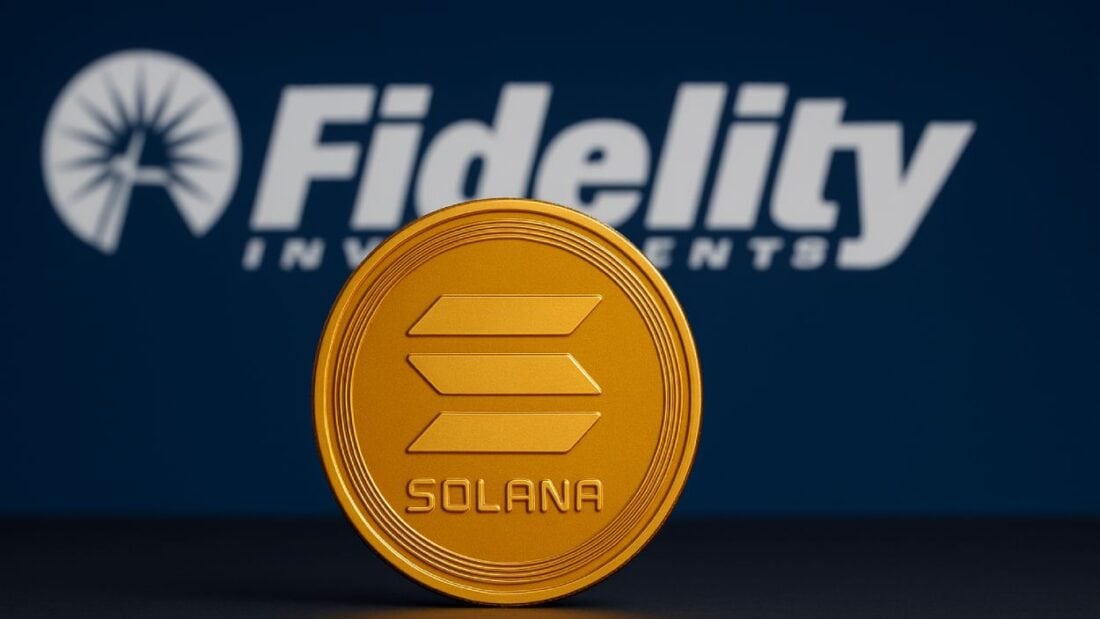Fidelity has taken a major step toward launching its spot Solana ETF by filing final documents with the SEC that include staking rewards and a temporary fee waiver to attract early investors.
Key Takeaways
- Fidelity removed procedural delays in its Solana ETF application, signaling a push for quicker SEC approval.
- The ETF will stake nearly all SOL holdings, offering yield benefits and network participation to investors.
- A fee waiver during the initial launch aims to draw early adopters and enhance fund competitiveness.
- Bitwise and Grayscale have also launched Solana ETFs, reflecting growing institutional interest in altcoin-based funds.
What Happened?
Fidelity has filed an amended and finalized S-1 registration for its proposed spot Solana ETF, removing delaying clauses that typically slow SEC review. The updated documents confirm that Fidelity plans to stake most of the ETF’s SOL holdings, allowing investors to benefit from staking rewards. The asset manager also revealed it will waive fees temporarily upon launch to incentivize early participation.
According to the official filing, Fidelity has submitted an updated S-1 registration for its spot Solana ETF, removing the “delaying amendment,” which previously prevented the registration from becoming automatically effective and placed timing control in the hands of the SEC.…
— Wu Blockchain (@WuBlockchain) October 30, 2025
Fidelity Accelerates Solana ETF Strategy
Fidelity’s latest filing reflects a clear urgency to get its Solana ETF to market. By eliminating the delaying amendment in the registration and naming Fidelity Product Services as the index provider, the firm is showing its readiness to move forward as soon as regulators give the green light.
Key components of Fidelity’s plan include:
- Staking nearly all SOL tokens via a network of validators, with only a small portion kept liquid for daily operations.
- Incorporating a proprietary pricing index to support accurate fund valuation.
- Temporary waiver of the annual management fee during the initial rollout phase.
The ETF, expected to trade under the ticker FSOL, would offer exposure to Solana while mirroring network participation through its staking model. This approach aligns with Solana’s proof-of-stake infrastructure and offers investors passive income alongside price exposure.
Staking-Enabled ETFs Gain Popularity
Fidelity is entering a rapidly heating ETF race. Bitwise has already launched its Solana Staking ETF (BSOL) on the New York Stock Exchange, reporting over $69 million in inflows and more than $56 million in trading volume on its first day. Grayscale has also converted its Solana Trust into a listed ETF, GSOL, which stakes over 74 percent of its more than 525,000 SOL holdings.
These launches come on the heels of the SEC’s August ruling, which allows staking in ETFs without classifying them as securities. This shift in policy has opened the floodgates for new altcoin products that offer both regulated access and staking-based yield.
Solana’s Institutional Appeal Rises
Analysts note that Solana’s high throughput, low fees, and growing developer activity across DeFi and consumer apps make it an increasingly attractive alternative to Ethereum. Fidelity’s ETF gives institutional and retail investors a chance to tap into this ecosystem in a regulated and yield-generating way.
Trading firms such as Cumberland DRW and Jane Street are expected to support liquidity for FSOL, further bolstering the fund’s market readiness.
Across the board, issuers like VanEck, 21Shares, and Bitwise are betting big on altcoins. With speculation mounting around potential XRP ETFs and increasing legal clarity, the ETF landscape is expanding far beyond Bitcoin and Ethereum.
CoinLaw’s Takeaway
Honestly, this feels like a defining moment for altcoin ETFs. I’ve watched the crypto ETF space for years, and Fidelity’s decision to combine staking with a fee waiver is a smart move. It signals confidence, but also a desire to differentiate. In my experience, the market rewards products that blend yield, liquidity, and transparency. I believe staking-based ETFs will reshape how mainstream investors approach altcoins. Solana is no longer just an alternative. It’s becoming a foundational layer in institutional portfolios.


































































